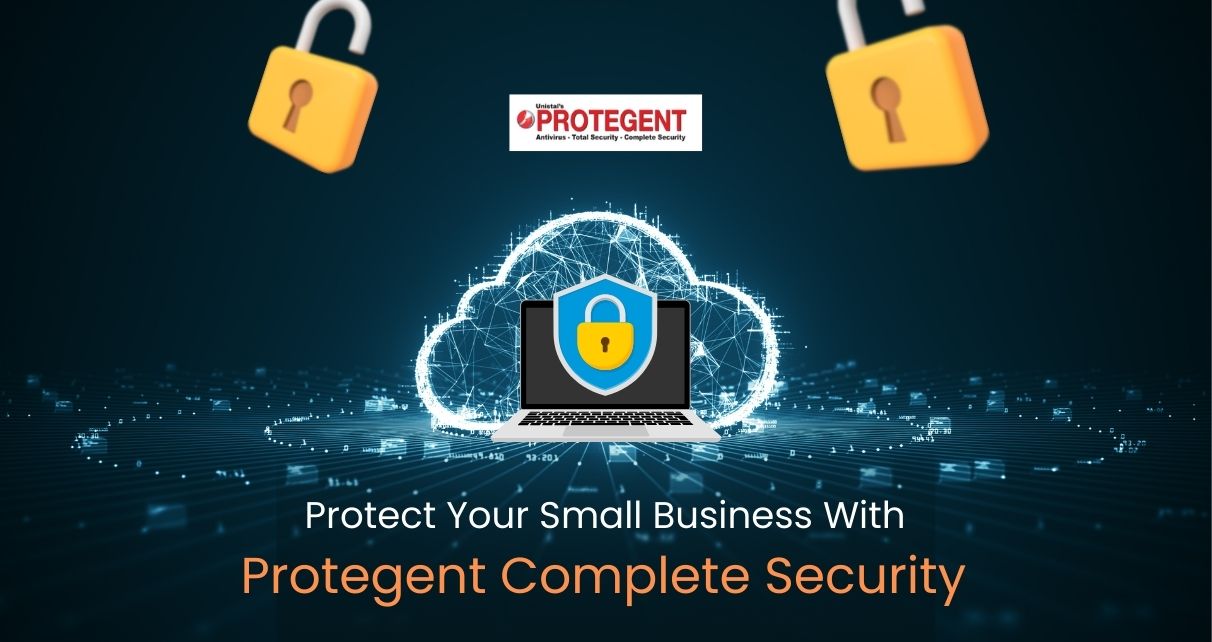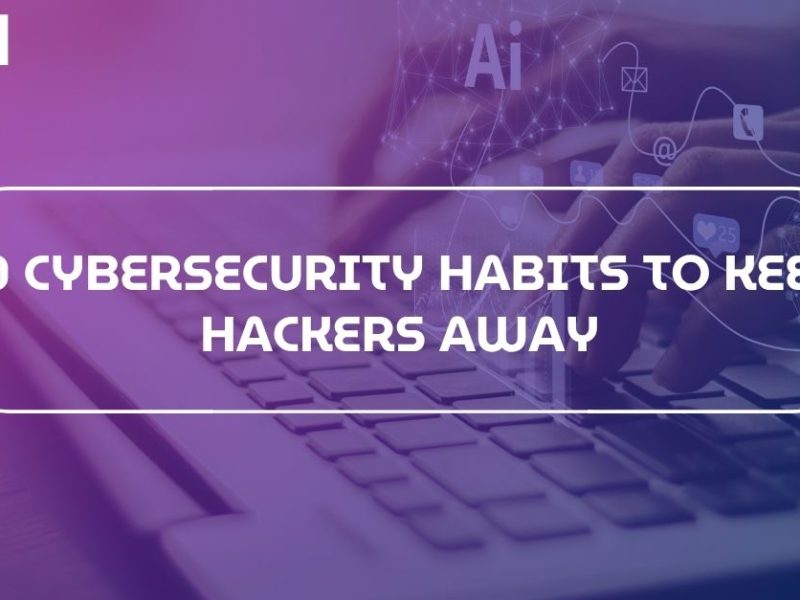
Think You’re Too Small to Be Hacked? Think Again!
Still think “small business” means “low risk”? Think again.
You’ve hustled hard to build your business — from late nights managing accounts to early mornings closing deals. But ask yourself this:
Is your business protected from cyber threats?
You may be running a manufacturing unit in Pune, a logistics service in Delhi, or a boutique in Bengaluru. You’ve got employees to pay, customers to satisfy, and bills that never stop piling up. Amid all this hustle, you tell yourself, “Why would hackers care about my business? I’m too small to be on their radar.”
Most Indian small business owners believe that cyberattacks only target large corporations. But here’s the harsh truth — your size is exactly what makes you a target!
Cyberattacks Aren’t Just for Big Brands Anymore
India is experiencing a silent crisis. According to the Indian Computer Emergency Response Team (CERT-In), over 13.91 lakh cybersecurity incidents were reported in 2022 alone. And guess what? 43% of cyberattacks globally now target small and medium-sized businesses (SMBs)—many of which are right here in India.
India reported over 1.4 million cybercrime incidents in 2023—a staggering increase from previous years. According to the Indian Computer Emergency Response Team (CERT-In), over 77,000 cybersecurity incidents were reported every month in 2023. And that’s just the tip of the iceberg—many cases go unreported, especially among small and medium enterprises (SMEs).
Even more alarming? According to a Cisco survey, 62% of Indian SMBs have suffered a cyberattack in the past year. What’s worse, 60% of small businesses shut down within six months of a major attack due to financial and reputational losses.
Still thinking you’re too small to be targeted?
Let’s get real—cybercriminals don’t discriminate based on the size of your business. Small businesses are more attractive to hackers because they’re often under-protected, underfunded, and under-aware.
The Financial Fallout: How a Cyberattack Can Bleed an SMB Dry
Running a business is already tough in India’s competitive market. Now imagine losing access to all your business data overnight. No invoices, no customer records, no vendor info. That’s not just an inconvenience—it’s a potential shutdown.
In India, where margins are thin and every rupee counts, recovery can be financially devastating.
Here’s how cybercrime hits you where it hurts most:
♦ Ransom Demands
Ransomware attacks are growing fast. Hackers lock your files and demand payment (often in cryptocurrency) to give them back. According to a 2023 study by Sophos, 76% of Indian organisations were hit by ransomware, and 66% paid the ransom. For a small business, this could mean lakhs of rupees gone in a flash.
♦ Revenue Loss & Customer Trust
A few hours of downtime? Missed deliveries? Poor service due to locked systems? Customers move on fast, and they don’t always come back.
♦ Expensive Recovery
If you don’t have backup systems or a response plan, you’ll be scrambling to recover data, restore systems, and manage the chaos. It’s like trying to rebuild your shop after a fire with no insurance.
♦ Legal and Regulatory Headaches
Under the Information Technology Act, 2000, Indian businesses are legally required to protect sensitive customer information. Failing to do so can lead to penalties, lawsuits, and irreversible brand damage.
Why Do So Many Indian SMBs Get It Wrong with Cybersecurity?
Let’s break down some of the most common mistakes Indian SMBs make when it comes to cyber protection:
-
- Spending Too Much on Prevention, Ignoring Response
Investing only in antivirus software and firewalls isn’t enough. What happens after an attack? You need a plan to detect, respond, and recover fast. - Choosing Cheap or Big-Brand Tools Without Understanding
Many business owners fall for cheap solutions or big brand names without understanding if the solution fits their business model. For instance, can the tool block phishing attempts? Does it offer ransomware recovery? - No Employee Training
More than 90% of cyber incidents start with a human error. One wrong click on a phishing email, and your entire network could be compromised. Yet, training staff is often skipped. - Blind Trust in Cyber Insurance
Insurance can help, but it won’t recover your lost customers, ruined reputation, or lost revenue instantly.
- Spending Too Much on Prevention, Ignoring Response
Where Should Indian SMBs Invest in Cybersecurity?
♦ Employee Training
Cyber awareness isn’t a one-time thing. Regular, localised training in phishing detection, safe browsing, and password hygiene is a must.
♦ Data Backup & Recovery
Ensure encrypted cloud backups, automated recovery plans, and periodic simulations to be breach-ready.
♦ All-in-One Security Software
Rather than juggling multiple vendors, go for an integrated solution like Protegent Complete Security Software—India’s trusted name in 360° digital protection that gives total security.
Why Protegent Complete Security is Ideal for Indian SMBs
From Delhi’s trading firms to Hyderabad’s startups, thousands of Indian SMBs trust Protegent because it’s
- Ransomware-Proof: Smart data backup and multi-layered threat detection
- Advanced Anti-Phishing & Firewall: Prevents fake sites and email fraud
- Hourly Threat Updates: Stay ahead of evolving threats
- Offline Protection: Defend even when you’re not online
- Web & App Control: Block malicious websites and manage employee access
- Parental & Activity Control: Ideal for family-run or home-office businesses
- Cloud Tech & Crash-Proof Design: Modern defense for today’s digital challenges
And yes — it even includes Laptop Tracking and SysBoost to improve speed and reduce crashes.
Cybersecurity Is an Investment, Not a Cost
Let’s say you invest ₹50,000 annually in a robust cybersecurity solution like Protegent. If even one cyberattack is prevented, which could cost you ₹8–10 lakh in damages, downtime, legal issues, and reputation loss, that’s an ROI of up to 20x.
Now imagine what that saved money could do: expand your team, buy better equipment, or invest in marketing.
Don’t Be the Next Statistic
Cybersecurity is not a luxury or a tick-box exercise — it’s a survival tool. You’ve already invested sweat and sleepless nights into your business. Don’t let a single cyberattack undo it all.
Even a chaiwala uses UPI, and a small-town saree seller is on Instagram. If your business is connected to the internet, you’re exposed, which means cybersecurity is no longer optional.
So stop thinking, “It won’t happen to me.”
Instead, it’s time to ask, “Am I doing enough to protect what I’ve worked so hard to build?”
Let Protegent Complete Security Software be your silent partner in keeping your business safe, sound, and growing.




